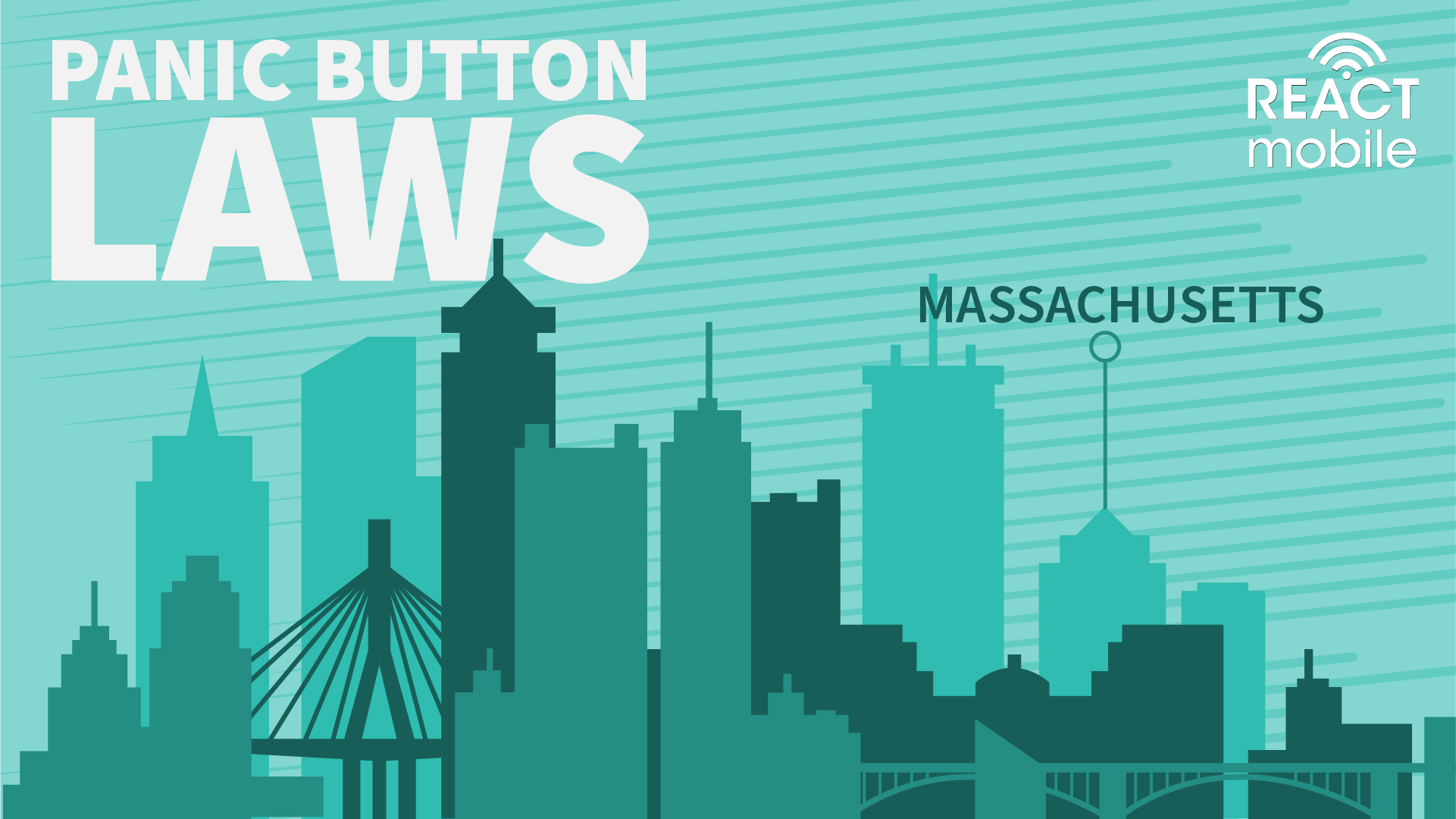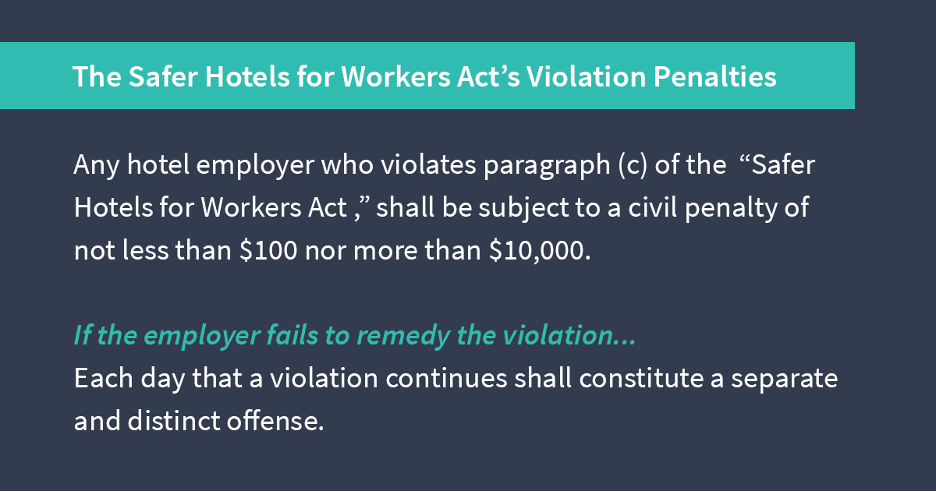What Massachusetts Hoteliers Need to Know about the Safer Hotels for Workers Act and Panic Buttons
by Jiun Wang, on Sep 5, 2023 8:30:00 AM

In 2018, the American Hotel & Lodging Association introduced the 5-Star Promise initiative, which included a pledge to provide hotel employees with a panic button device for summoning help in case of an emergency. More than 50 hotel companies immediately committed to enhancing their employees' safety by implementing an enterprise workplace safety platform and improving their policies and training in response to issues such as sexual harassment or assault. This industry-wide effort demonstrated a commitment to prioritizing employee safety in the hospitality sector, making it a safer and more secure place to work for all employees.
Over the past five years, there has been significant adoption and acceptance of providing hotel workers who work alone with panic button devices to help pinpoint their location during an emergency. This focus on employee safety has expanded into state-level legislation, with representatives in Massachusetts submitting the "Safer Hotels for Workers Act" or Bill H.1657. This bill is aimed at protecting hotel workers from sexual assault while they are on the job. In this article, we will explore the details of the bill and its potential impact on hotels in Massachusetts should it be passed into law.
For more compliance details for other cities and states in the United States, view our comprehensive Panic Button Legislation Guide for Hoteliers here.
Disclaimer: The content and materials available in this article are for informational purposes only and not for the purpose of providing legal advice. You should contact your attorney to obtain advice with respect to any particular issue or problem. The opinions expressed at or through this site are the opinions of the individual author.
Overview
In January 2019, Adrian C. Madaro presented a petition to the Senate and House of Representatives in the Commonwealth of Massachusetts to protect hotel employees from sexual assault. This resulted in the introduction of the Safer Hotels for Workers Act, also known as Bill H.1657. As of February 27th, 2020, the bill has been deemed favorable by the committee and referred to the House Ways and Means. If passed, the bill would require hotels with more than 25 rooms to provide any employee assigned to work in a guest room or enclosed area with a panic button in case of an emergency. Additionally, hotels would need to establish a program to educate employees on how to utilize the panic button and the policy and procedures to follow in the event that it needs to be activated. This bill aims to ensure the safety and security of hotel workers and protect them from potentially dangerous situations.
Summary of Hotel Employer Responsibilities
Pending the State of Massachusetts to pass the Safer Hotels for Works Act, the bill would apply to all hotels (i.e., includes establishments that offers and accept payment for rooms, sleeping accommodations or board and lodging) that contains at least 25 guest rooms.
Main employer responsibilities consist of:
- Provide a panic button device to each hotel employee assigned to work in a guest room or any enclosed area where no other workers are assigned to be present.
- Develop and maintain a program that includes written information to educate the hotel employee on how to use the panic button, including policy and procedures to follow once activated.
- Place a sign in prominent locations on the inner door of guest rooms and enclosed areas that notifies guests about the panic button policy at the hotel and the rights of their employees.
- Any notice provided to guests must use specific heading “The Law Protects Hotel Workers from Sexual Assault and Harassment”, and clearly state “for the protection of our workers, this establishment provides safety buttons to its workers who are reasonably expected to work alone in an area where guests are expected to be present, in compliance with section 105E of Chapter 149D of the Massachusetts General Laws.”
- When a panic button is activated, the assigned staff member or security offers must immediately respond to the location of the hotel employee.
- Maintain a three-year record of all activated panic buttons. The record must include details such as the accusation that led to the activation of the panic button, the identity of any accused guest, and any internal investigation conducted by the hotel.
State of Massachusetts Hotel Panic Button Devices
When it comes to choosing a workplace safety solution for hotels in Massachusetts, it's important to select a platform that complies with the potential regulations and is trusted to respond quickly in case of an emergency. Hotels with 25 guest rooms and more will need to equip their employees with panic button devices that match the requirements outlined in the ordinance. These devices must feature the following:
- Be portable and easy to activate.
- Allow for immediate on-scene response.

(Image: Photo of a small, portable, and wearable panic button on a hand)
Providing employees with panic button devices is a proactive measure that can help protect hotels and their employees in the event of an emergency. By having a quick and easy way to call for help, hoteliers can prevent a dangerous situation from escalating and address problems in a timely and efficient manner, ultimately safeguarding their brand reputation. While some hotels may not have experienced an incident recently, investing in a workplace safety platform, that includes panic button devices, demonstrates a commitment to employee safety and makes it clear that the hotel takes their responsibility to provide a safe work environment seriously.
What Happens if a Hotel Doesn’t Comply Within 1-Year after the Bill’s Passage?
 (Image: Summary of violation penalties, please review Bill H.1657 for the most accurate information)
(Image: Summary of violation penalties, please review Bill H.1657 for the most accurate information)
Compliance with the Safer Hotels for Workers Act in Massachusetts is of utmost importance to ensure the safety and well-being of hotel employees. Failure to comply with the regulations outlined in the act (Paragraph C) can result in serious consequences, including civil penalties ranging from $100 to $10,000. Moreover, if the hotel fails to take corrective action to remedy the violation, the number of offenses can increase, with each violation per day considered a separate and distinct offense. It is essential for hotel employers to take these regulations seriously and ensure full compliance to avoid any potential penalties and provide a safe work environment for their employees.
Deciding on the Right Panic Button Solution
When it comes to choosing a hotel panic button solution, there are many options available in the marketplace. However, it's important to look for a solution offered by a safety-focused technology company with a dedicated team that consistently upgrades the platform. Companies that merely add panic buttons as an afterthought may have their support team dispersed, making it difficult to get the necessary assistance when required. At React Mobile, we're committed to making the world a safer place and supporting hoteliers in creating the best workplace safety solutions in compliance with regulatory requirements. If you're interested in learning how our solution can help you meet potential panic button requirements in the State of Massachusetts, contact us today to schedule a free demo. We're here to partner with you and ensure your hotel's safety and security.

